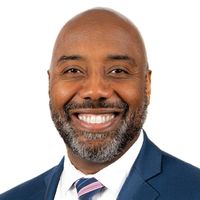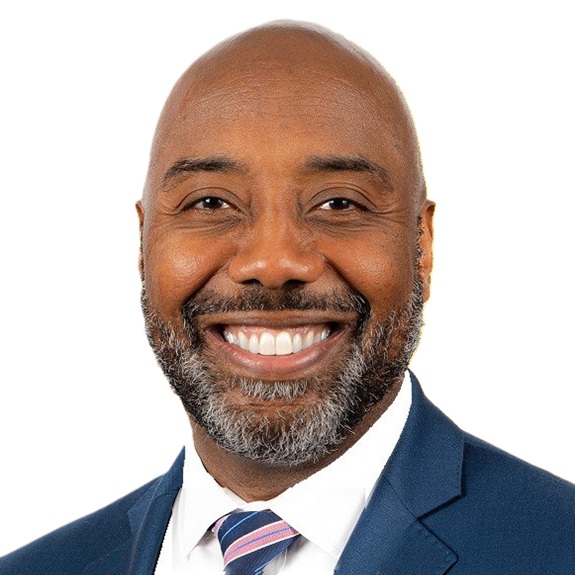Why Your Business Shouldn’t Be Your Only Retirement Plan
You can’t depend on selling your company for big bucks to fund your dream retirement. Instead, consider these three smart saving, investing and succession tips.


Profit and prosper with the best of Kiplinger's advice on investing, taxes, retirement, personal finance and much more. Delivered daily. Enter your email in the box and click Sign Me Up.
You are now subscribed
Your newsletter sign-up was successful
Want to add more newsletters?

Delivered daily
Kiplinger Today
Profit and prosper with the best of Kiplinger's advice on investing, taxes, retirement, personal finance and much more delivered daily. Smart money moves start here.

Sent five days a week
Kiplinger A Step Ahead
Get practical help to make better financial decisions in your everyday life, from spending to savings on top deals.

Delivered daily
Kiplinger Closing Bell
Get today's biggest financial and investing headlines delivered to your inbox every day the U.S. stock market is open.

Sent twice a week
Kiplinger Adviser Intel
Financial pros across the country share best practices and fresh tactics to preserve and grow your wealth.

Delivered weekly
Kiplinger Tax Tips
Trim your federal and state tax bills with practical tax-planning and tax-cutting strategies.

Sent twice a week
Kiplinger Retirement Tips
Your twice-a-week guide to planning and enjoying a financially secure and richly rewarding retirement

Sent bimonthly.
Kiplinger Adviser Angle
Insights for advisers, wealth managers and other financial professionals.

Sent twice a week
Kiplinger Investing Weekly
Your twice-a-week roundup of promising stocks, funds, companies and industries you should consider, ones you should avoid, and why.

Sent weekly for six weeks
Kiplinger Invest for Retirement
Your step-by-step six-part series on how to invest for retirement, from devising a successful strategy to exactly which investments to choose.
For many business owners, their companies are more than just a way to support themselves during their working years — they’re also their retirement plans. After all, years spent pouring energy into an enterprise can yield a profitable business that, when sold, offers ample funds to support the owner through their golden years.
In reality, this strategy comes with risks. Consider Gary, an optometrist in Georgia. For more than two decades, Gary expanded his patient base and grew the practice’s profitability. Last year, he expected to sell his practice for approximately $3 million to $4 million and retire comfortably. Yet when it came time to sell, a corporate optometry chain opened a location in his town, and prospective buyers were no longer willing to pay what he thought the business was worth. Gary could get at most $2.5 million, leaving him with a significant gap in his retirement funds because he was too preoccupied with running his business to diversify his retirement planning strategy.
Business owners who haven’t planned adequately for their retirement may be overly dependent on the sale of their business to fund their next stage of life. But things outside of their control — changes in macroeconomic conditions or shifting consumer demands, for example — can force them to sell for a fraction of what they think the business is worth or even delay the sale (and their retirement) altogether.
From just $107.88 $24.99 for Kiplinger Personal Finance
Become a smarter, better informed investor. Subscribe from just $107.88 $24.99, plus get up to 4 Special Issues

Sign up for Kiplinger’s Free Newsletters
Profit and prosper with the best of expert advice on investing, taxes, retirement, personal finance and more - straight to your e-mail.
Profit and prosper with the best of expert advice - straight to your e-mail.
Fortunately, there are ways to mitigate these risks and prepare for retirement responsibly. Here’s what business owners should know.
Three ways business owners can diversify their retirement plan
By diversifying investments and saving for retirement, business owners like Gary can seek to ensure that whatever the market is like, they can retire comfortably on their own terms. These three best practices are a good place to start.
1. Maximize your retirement savings (beyond 401(k)s).
Business owners often help their employees prepare for retirement while neglecting themselves in the process. Providing a 401(k) plan to employees, for example, is common practice, but business owners don’t always contribute to their own 401(k)s. Even if they did, it still may not be enough to adequately fund retirement at their preferred lifestyle due to annual limits on tax-deferred contributions to a 401(k).
To take full advantage of financial instruments geared toward retirement, business owners should consider implementing profit-sharing and/or cash balance plans in addition to their 401(k).
Cash balance plans, which incorporate elements of both defined benefit and defined contribution retirement plans, allow business owners to set aside a greater portion of tax-deferred income, enjoying tax deductions and contributions in excess of 401(k) limits. Under 2024 rules, for example, a 50-year-old business owner can contribute as much as $281,500, fully tax deductible, in a properly structured cash balance plan. Similarly, deferred profit-sharing plans enable owners to set aside profits for retirement with substantial tax benefits and flexibility.
2. Develop a strong investment portfolio.
Passionate about their companies, business owners often reinvest profits back into the business. Yet to truly help minimize risk and prepare for retirement, it’s helpful to have investments that are fully separate from the business and capable of leveraging long-term market growth potential.
Working with an investment adviser to craft a portfolio that aligns with your goals can help take pressure off the business now, should there be an emergency, and later when you’re planning to sell it and retire.
3. Build your own buyer.
For business owners worried about what the market will be like when it comes time to sell their business, there is another option: Build your own buyer through effective succession planning.
Nurturing a relationship with a potential buyer, whether that’s someone currently with the company or a trusted party outside of it, can mean that when it comes time to sell the business, the sale goes smoothly and for a fair price. That’s because a buyer like this likely understands the value of the company and has a relationship with the owner.
As an added benefit, careful succession planning can help the business thrive even after its original owner or founder is no longer at the helm. For business owners who have poured their blood, sweat and tears into their businesses, leaving their company in trusted hands can help them confidently begin retirement and the next stage of their lives.
Own your future retirement
Gary and other business owners should always be planning for the future of their business and their retirement.
While these will likely overlap, relying only on the sale of a business to fund your retirement is too risky when your future is on the line. Having a diversified retirement strategy — as well as working with a financial adviser who understands you and your business — can help business owners plan for a secure and fulfilling retirement.
This article, which has been written by an outside source and is provided as a courtesy by Stephen B. Dunbar III, JD, CLU, Executive Vice President of the Georgia Alabama Gulf Coast Branch of Equitable Advisors, LLC, does not offer or constitute, and should not be relied upon, as financial, investment, tax, legal advice. Your unique needs, goals and circumstances require the individualized attention of your own tax, legal, and financial professionals whose advice and services will prevail over any information provided in this article. Equitable Advisors, LLC and its affiliates do not provide tax or legal advice or services Stephen B. Dunbar III offers securities through Equitable Advisors, LLC (NY, NY 212-314-4600), member FINRA, SIPC (Equitable Financial Advisors in MI & TN), offers investment advisory products and services through Equitable Advisors, LLC, an SEC-registered investment advisor, and offers annuity and insurance products through Equitable Network, LLC (Equitable Network Insurance Agency of California, LLC). Financial Professionals may transact business and/or respond to inquiries only in state(s) in which they are properly qualified. GE-6536878.1(04/24)
Related Content
- What to Do When You Have More Retirement Income Than You Need
- Three Tips for Selling Your Business and Getting the Most Value
- Five Tax Breaks Business Owners Might Not Know About
- The Joy of Owning a Business in Retirement
- Are You Ready to Retire? Find Out With This 10-Item Checklist
Profit and prosper with the best of Kiplinger's advice on investing, taxes, retirement, personal finance and much more. Delivered daily. Enter your email in the box and click Sign Me Up.

Stephen Dunbar, Executive Vice President of Equitable Advisors’ Georgia, Alabama, Gulf Coast Branch, has built a thriving financial services practice where he empowers others to make informed financial decisions and take charge of their future. Dunbar oversees a territory that includes Georgia, Alabama and Florida. He is also committed to the growth and success of more than 70 financial advisers. He is passionate about helping people align their finances with their values, improve financial decision-making and decrease financial stress to build the legacy they want for future generations.
-
 Stocks Shrug Off Tariff Ruling, Weak GDP: Stock Market Today
Stocks Shrug Off Tariff Ruling, Weak GDP: Stock Market TodayMarket participants had plenty of news to sift through on Friday, including updates on inflation and economic growth and a key court ruling.
-
 You Received a Life Insurance Payout. Here's How to Avoid an IRS Audit.
You Received a Life Insurance Payout. Here's How to Avoid an IRS Audit.You received a big check from your loved one's life insurance policy. Will the IRS be expecting a check from you now?
-
 Supreme Court Strikes Down Trump Tariffs: What's Next for Consumers and Retailers?
Supreme Court Strikes Down Trump Tariffs: What's Next for Consumers and Retailers?Tax Law This landmark decision will reshape U.S. trade policy and could define the outer boundaries of presidential economic power for years to come.
-
 I'm a Financial Planner: This Is How You Can Legally Divorce the IRS for the Rest of Your Life
I'm a Financial Planner: This Is How You Can Legally Divorce the IRS for the Rest of Your LifeWith some careful planning focused on the standard deduction, retirees who have large sums in tax-deferred accounts can avoid unpleasant tax bills and even part ways with the IRS for good.
-
 9 Ways the Wealthy Waste Thousands in Taxes: A Checklist for What Not to Miss
9 Ways the Wealthy Waste Thousands in Taxes: A Checklist for What Not to MissThe tax code contains plenty of legitimate ways for the wealthy and business owners to cut taxes. Use this checklist to minimize taxes and stay compliant.
-
 When Estate Plans Don't Include Tax Plans, All Bets Are Off: 2 Financial Advisers Explain Why
When Estate Plans Don't Include Tax Plans, All Bets Are Off: 2 Financial Advisers Explain WhyEstate plans aren't as effective as they can be if tax plans are considered separately. Here's what you stand to gain when the two strategies are aligned.
-
 Counting on Real Estate to Fund Your Retirement? Avoid These 3 Costly Mistakes
Counting on Real Estate to Fund Your Retirement? Avoid These 3 Costly MistakesThe keys to successful real estate planning for retirees: Stop thinking of property income as a reliable paycheck, start planning for tax consequences and structure your assets early to maintain flexibility.
-
 I'm a Financial Planner: These Small Money Habits Stick (and Now Is the Perfect Time to Adopt Them)
I'm a Financial Planner: These Small Money Habits Stick (and Now Is the Perfect Time to Adopt Them)February gets a bad rap for being the month when resolutions fade — in fact, it's the perfect time to reset and focus on small changes that actually pay off.
-
 Social Security Break-Even Math Is Helpful, But Don't Let It Dictate When You'll File
Social Security Break-Even Math Is Helpful, But Don't Let It Dictate When You'll FileYour Social Security break-even age tells you how long you'd need to live for delaying to pay off, but shouldn't be the sole basis for deciding when to claim.
-
 I'm an Opportunity Zone Pro: This Is How to Deliver Roth-Like Tax-Free Growth (Without Contribution Limits)
I'm an Opportunity Zone Pro: This Is How to Deliver Roth-Like Tax-Free Growth (Without Contribution Limits)Investors who combine Roth IRAs, the gold standard of tax-free savings, with qualified opportunity funds could enjoy decades of tax-free growth.
-
 One of the Most Powerful Wealth-Building Moves a Woman Can Make: A Midcareer Pivot
One of the Most Powerful Wealth-Building Moves a Woman Can Make: A Midcareer PivotIf it feels like you can't sustain what you're doing for the next 20 years, it's time for an honest look at what's draining you and what energizes you.